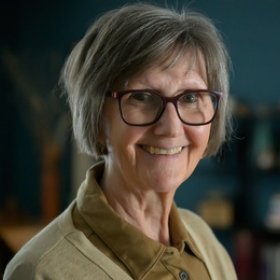Paula M. Carbone
- Professor (Teaching) of Education
Research Concentration
- Teacher Education
Education
PhD, University of California, Los Angeles
Expertise
- Teacher Education
Bio
Paula M. Carbone is a professor of clinical education at USC Rossier. She works with pre-service teachers (PSTs) and undergraduate students.
I have been an educator for over a 30+ years. My goal is to ensure that every student realizes that they have the ability to make a difference, and that, as the Sustainable Schools Project notes, they are able to affect change or impact a system, community, and self. To build this capacity, the English Language Arts pre-service teachers with whom I work are equipped to develop critical and creative thinking in their students, with an emphasis on problem solving and analytic frameworks such as ecocriticism. Futures thinking emerges from this approach to engage students in making relevant meaning of the worlds they inhabit.
Before coming to USC Rossier, I was a high school English teacher in Los Angeles. She received her PhD in Education from the University of California, Los Angeles, her MEd from the University of California, Los Angeles and a BFA in Theater Education and Language Arts from Boston University, College of Fine Arts.
Awards and Grants
USC Sustainability Grant - 2021
Rossier Mentoring Award - 2017
Courses Taught
EDUC 439: Education for Sustainable Futures
The purpose of this course is to examine the role of public education in today’s society –local, national, and global - as a vehicle for the betterment of humanity’s shared future. The overarching question this course poses as an organizing principle is: How might disparate, seemingly irreconcilable agendas within a multicultural society work together within public educational contexts for a sustainable, shared future? Sustainable futures cannot rely solely on "technological advances, legislation and policy." They must be accompanied by..."changes in mindsets, values and lifestyles, and the strengthening of people's capacities to bring about change" (UNESCO, 2012, p.5).
EDUC 673 & 677: Application of Curriculum & Pedagogy in Urban English Language Arts Classrooms, Parts A & B
This course is designed for candidates to apply content knowledge of English Language Arts using pedagogical approaches that promote complex, rigorous, and appropriately challenging learning. The major goals are to engage students in meaningful learning using dialogic discussions, culturally situated skills development, problem-posing inquiry, and and other competencies in ELA to facilitate instruction that enables learners to become collaborative and independent problem-solvers, as well as critical and creative thinkers.
Publications
- Carbone, P. M. (2025). Hope beyond palliatives: Building youths' capacity for climate justice action. English Journal, 114(3), 18-26.
- Carbone, P. M. (2024, Nov 19). Fast fashion brands need a dressing down. U.S. World and News Report.
- Carbone, P. M. (2024, Nov 20). Fast fashion may seem cheap but it’s taking a costly toll on the planet – and on millions of young customers. The Conversation.
- Carbone, P. M. (2017). Multimodal composing: Engaging diverse learners in AP English Language and Composition. Gifted Education Quarterly, Winter 2017. Available at http://giftededucationcommunicator.com/gec-winter-2017/ Carbone, P. M. (2016, June 03). [Review of the book Urban teaching: the essentials, (3rd. ed.)]. Teachers College Record, http://www.tcrecord.org
- Carbone, P. M. (2014). Aristotle in the classroom: scaffolding the rhetorical situation. Voices in the Middle, 21(3), 41-48. Carbone, P. M., & Reynolds, R. (2013). Considering Community Literacies in the Secondary Classroom: A Collaborative Teacher and Researcher Study Group. Teacher Development. Carbone, P. M. (2012). Writing Instruction to Support Generation 1.5 Students’ Acquisition of Academic Persuasive Writing. In B. Yoon & H. K. Kim (Eds.). Teachers’ roles in second language learning: Classroom applications of sociocultural theory. Charlotte, NC: Information Age Publishing, Inc. Carbone, P. M. (2010). Using commonplace books to help students develop multiple perspectives. English Journal, 99(6). Carbone, P. M., & Orellana, M. F. (2010). Developing academic identities: Persuasive writing as a tool to strengthen emergent academic identities. Research in the Teaching of English, 44(3), 292-316. Martínez, R., Orellana, M., Pacheco, M., & Carbone, P. (2008). Translating Voices: Connecting Bilingual Youths’ Translation Experiences to Academic Writing. Language Arts, 85(6), 21-431. Pacheco, M., Carbone, P., & Martínez, R. (2006). Professional book reviews: Learning from multilingual and multicultural students to plan literacy curriculum. Language Arts, 84(2), 194-6.
Research
Current research is focused on the application of the ecocritical framework to investigate hot is may increase students positive relationships with nature.
Certifications
National Board Certified Teacher, ELA

